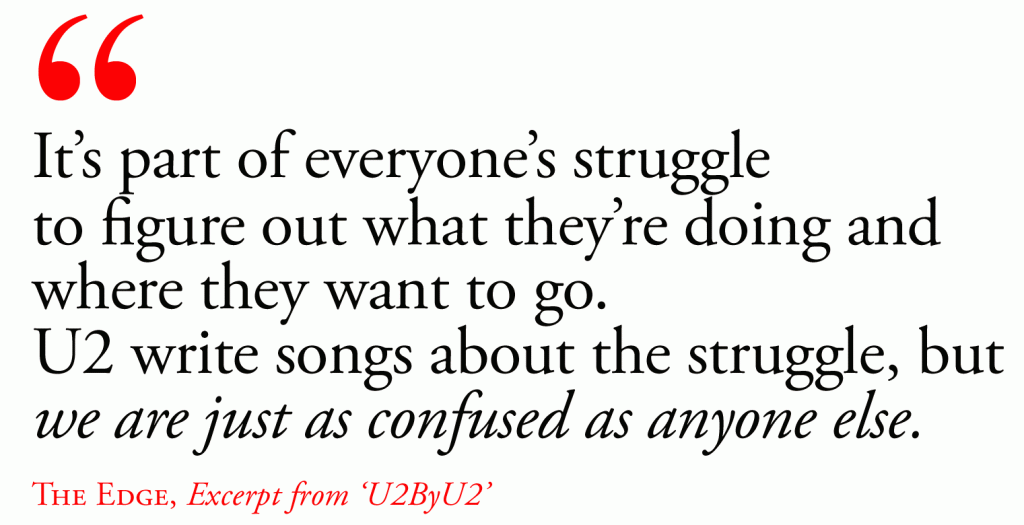
Thanks to a friend, I’m reading a biography about U2 now and getting inspired by how much I agree with this band. I think this quote from The Edge really sums up my feelings about being in awe by famous people or having idols in general, that we are all equally confused about lives and we have to listen to ourselves to decide on the life we want.
My personal journey with U2 began really superficially, I have a U2 iPod because I liked the colour combination. Then I started hearing U2 songs and I got captivated by its messages of brotherhood, patriotism and passion. It certainly helped that Bono is the poster boy of idealism, helping the fight against poverty and aids in the Third World.
But true to the spirit of the quote, Bono gets confused sometimes too. His campaign to fight HIV and AIDS in Africa, (Red), got a lot of debate amongst my friends recently. One felt it was bad because it only encouraged consumerism, another felt it was the only way to get big corporations to cooperate (after all, what’s in it for them?). In fact, there is a campaign that attempts to correct the failings of (Red), it’s called Buy Less!
There seems to be a trend of selling idealism as a way of life nowadays and (Red) is one instance of this and others include magazines like GOOD and Monocle. It shows that everything can be commodified and I am worried that its original intentions would be diluted.
In a sense, it adds another layer between the donor and the needy. It used to be charitable organisations, now that has enlarged and comes in some form of “social enterprises” — businesses that attempt to have some social good component. People start thinking that they can continue with their normal lives and somebody else will take care of those who need help. Apathy arises when its always somebody else taking care of it, and it seems to complicate matters like how to sustain these people and what values they stand for. Most importantly, there is the death of the personal relationship between the donor and the needy and charity organisations try to simulate that by creating “personalised” greeting cards of gratitude when Christmas comes. It just feels… fake. Jean Baudrillard, a postmodern thinker who theorised that simulation would take over the original, would have felt so vindicated.